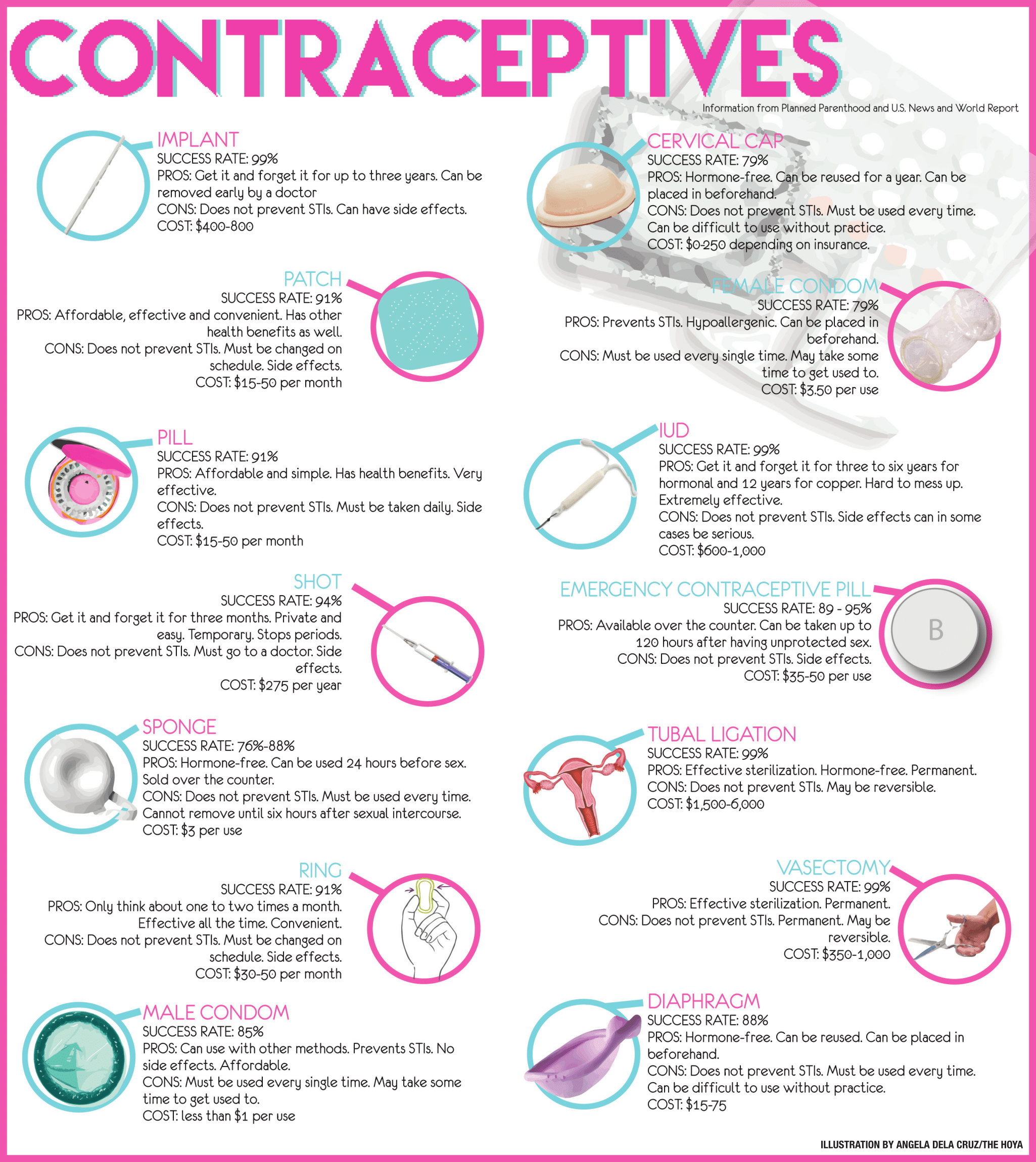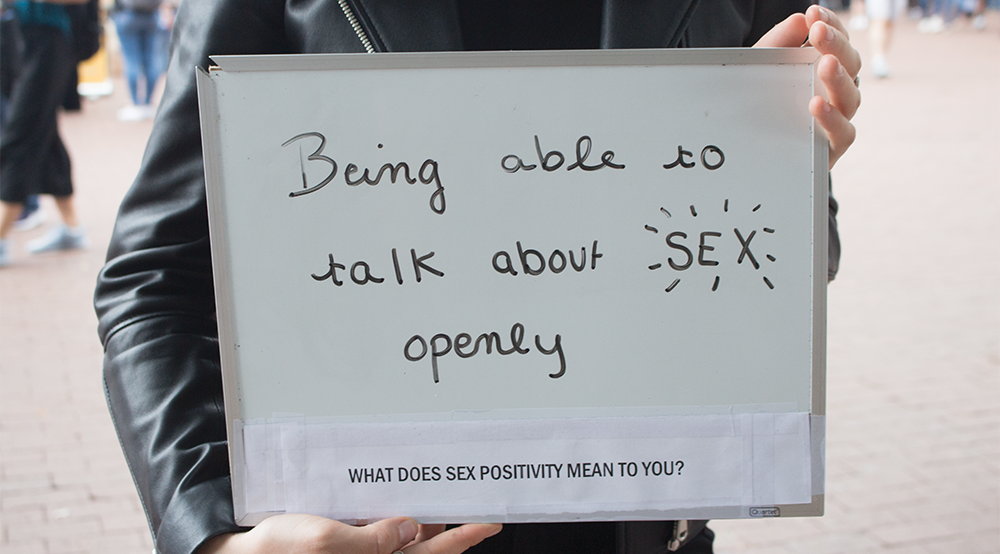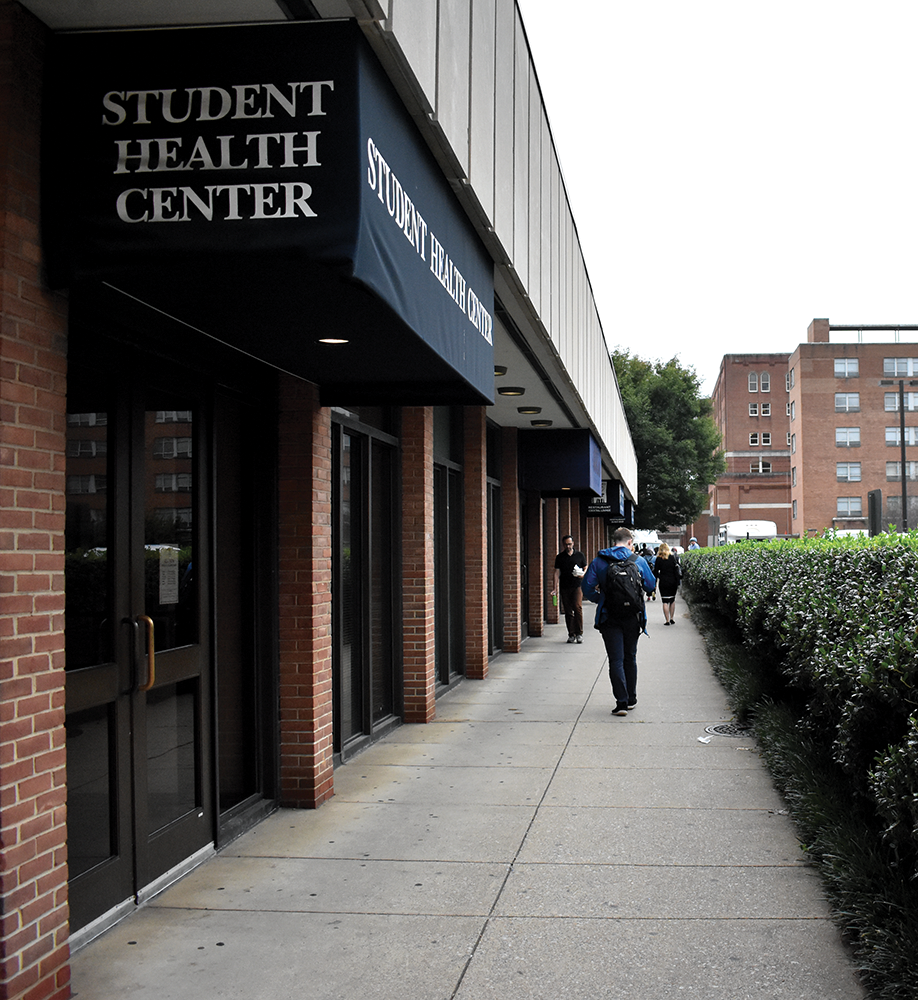
Contraception: It is a word that invokes many different emotions.
Some might feel uneasy, while others might feel empowered.
Contraception is the use of artificial or behavioral methods to prevent pregnancy as a consequence of sexual intercourse. Contraception includes ingestives, like the birth control pill, devices, like male and female condoms, and behavioral methods, such as abstinence and the withdrawal method.
There is evidence to suggest that sex education including information on both contraception and abstinence helps young people delay sex.
According to “Emerging Evidence, Lessons and Practice in Comprehensive Sexuality Education: A Global Review,” a study by the United Nations Population Fund, “many of these programs have resulted in delayed sexual debut, reduced frequency of sex and number of sexual partners, increased condom or contraceptive use, or reduced sexual risk-taking.”
Many young adults do not know what contraceptive options are out there. A study conducted by the Guttmacher Institute revealed that “only 55 percent of young men and 60 percent of young women had received formal instruction about methods of birth control.” Additionally, only 31 percent of males and 46 percent of females were informed of where to get birth control.
Most college students are familiar with condoms, but not many of themknow the facts. Condoms are 85 percent effective and help protect you from sexually transmitted infections like herpes, chlamydia and human papillomavirus infection, among others. The birth control pill, when used exactly as prescribed, is 99 percent effective, but in practice, the pill is 91 percent effective due to missed pills and other complications. Additionally, the pill does not prevent from sexually transmitted infections. An intrauterine device, which is inserted into the uterus, is 99 percent effective but also does not prevent STI transmission.
The birth control patch, birth control shot, birth control vaginal ring, cervical cap and diaphragm also help prevent pregnancy but fail to prevent STIs. Conversely, dental dams prevent STI transmission during oral sex but are not intended to be used to prevent pregnancy.
The only 100 percent effective method of preventing STIs and pregnancy is abstinence.
Furthermore, contraception can be used for certain purposes other than preventing pregnancy. For example, there are a number of reasons why one may choose to take birth control medication.
The birth control pill is often used to lighten periods, reduce menstrual cramps and subdue premenstrual syndrome. According to Planned Parenthood, the combination pill may also reduce or help prevent acne, anemia, bone thinning, cysts in the breasts and ovaries, endometrial and ovarian cancers and serious infections in the reproductive system.
But that is just scratching the surface of intricacies surrounding contraception. Students seeking information may not be able to answer all of their questions on campus.
The LGTBQ Resource Center, the Women’s Center and the Student Health Center are not permitted to refer students to organizations that offer abortion. Though physicians and nurse practitioners at the Student Health Center may prescribe birth control, they are not permitted to do so for the express purpose of preventing pregnancy. Georgetown University will also not contract, arrange or pay for contraceptive coverage.
Divisions over contraception are clear on campus.
H*yas for Choice and Georgetown University Right to Life, formerly known as Vita Saxa, table just feet away from each other in Red Square. While GU RTL does not have a formal stance on contraception, its overall take on reproductive rights contrasts with HFC’s progressive attitude. These two organizations, among others, represent a small microcosm of the student body at large.
Amelia Irvine (COL ’19) and MyLan Metzger (COL ’19), president and vice president of Love Saxa, a campus organization dedicated to promoting chastity and marriage between a man and a woman, do not believe the university should fund contraceptives.
“No one has the right to sex without consequences. Having sex in college is a choice, a choice that Georgetown has no obligation to materially support or endorse,” Irvine and Metzger wrote in a joint email statement to The Hoya. “It is our hope that Georgetown students would embrace a safer, healthier lifestyle of chastity, one in which birth control is not a necessity.”
Considering the current sociopolitical atmosphere, it is pertinent than ever that we pay attention to the university’s policies on contraception, according to Michaela Lewis (COL ’18) and Annie Mason (COL ’18), co-presidents of pro-abortion rights group H*yas For Choice.
“The most targeted communities are low-income and working class dependents whose parents/guardians do not have adequate insurance through their employers. Graduate students who are not dependents and do not receive private insurance through an employer are also particularly vulnerable to any changes the University may choose to make regarding birth control coverage,” Lewis and Mason wrote in an email statement to The Hoya.
Ultimately, it is most imperative that students be aware of different contraceptive options and be able to make educated decisions about what option is right for them.





















Nancy • Jun 1, 2019 at 6:53 am
Excellent post, Megan! It is so important in today’s time for young adults to be aware of what options are out there when it comes to contraception. This post is a neat guide for those who want to learn more about practising safe sex. Thanks for sharing this. P.S. is the contraceptive image downloadable?
Taylor Bishop • Nov 8, 2017 at 9:52 am
Thanks for going over contraception. It’s interesting to think that it can help with different things, like helping someone reduce menstrual cramps. I’m a bit interested to learn more about this or some other ways that this could benefit someone, especially for specific circumstances.